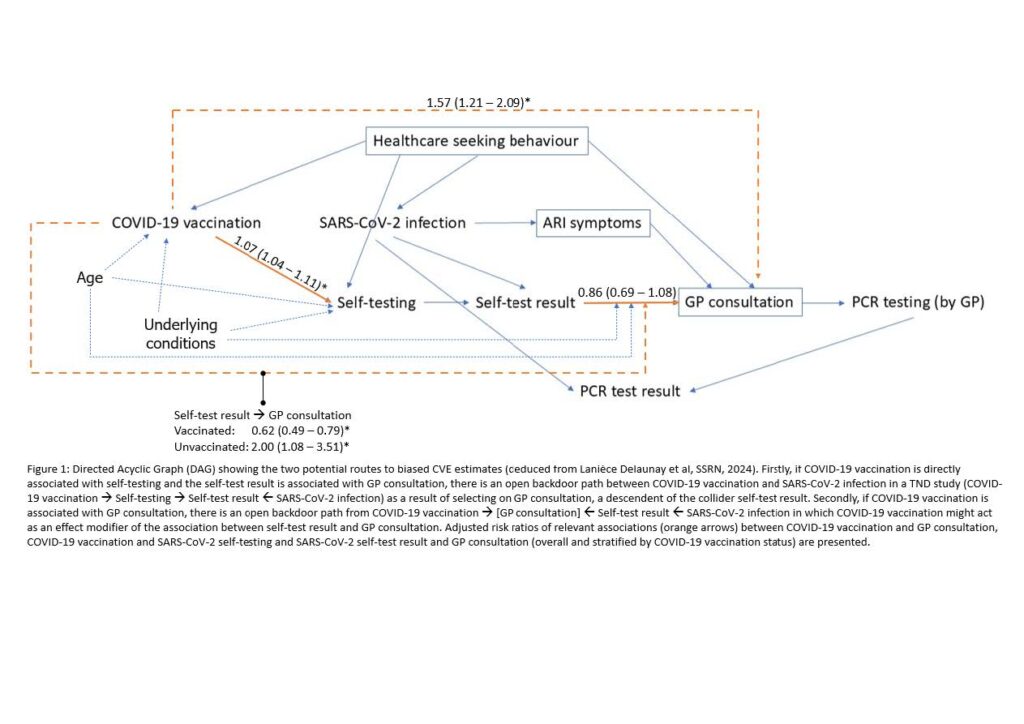Causal Inference
The effect of SARS-CoV-2 rapid antigen self-test use on healthcare seeking behaviour at primary care level: implications for COVID-19 vaccine effectiveness estimates in test-negative design studies. Cheyenne van Hagen* Cheyenne van Hagen Eric R.A. Vos Charlotte Lanièce Delaunay Hester E. de Melker Esther Kissling Mirjam J. Knol
Widespread diagnostic (self-)testing for SARS-CoV-2 may lead to selection bias in test-negative case-control designs (TND) for COVID-19 vaccine effectiveness (CVE) at primary care level by compromising blinding of patients and general practitioners (GP). We investigated whether self-testing among those with an acute respiratory infection (ARI) is associated with healthcare seeking behavior at primary care level in the general Dutch population.
We pooled questionnaire data from three study rounds (June 2022, November 2022 & April 2023) of the nationwide PIENTER Corona cohort study. Among participants aged 18-91 years, we selected the first self-reported ARI episode, defined as cough, sore throat, dyspnea and/or coryza, since March 2022. We performed log-binomial regression analyses adjusted for age, sex and education level to assess associations (Figure 1, orange arrows) between COVID-19 vaccination, SARS-CoV-2 self-testing and GP consultation, and between GP consultation and self-test result overall and stratified by vaccination status.
Among 3,152 participants with an ARI episode, vaccinated participants more often took a self-test (adjusted RR [95% CI]: 1.07 [1.04–1.11]) or consulted a GP (1.57 [1.21–2.09]) than those unvaccinated (Figure 1). Self-test result was overall not associated with GP consultation (0.86 [0.69–1.08]). Stratification by vaccination status showed that vaccinated individuals were less likely to consult the GP after a positive self-test (0.62 [0.49–0.79]), while those unvaccinated were more likely to (2.00 [1.08–3.51]).
In this Dutch population-based cohort, GP consulting was differential by self-test result and vaccination status between May 2022 and March 2023, indicating a potential for selection bias in TND CVE estimates due to self-tests. Our findings suggest that this may cause an overestimation of CVE. More research in various settings and larger study populations is needed to further explore and quantify this bias.

